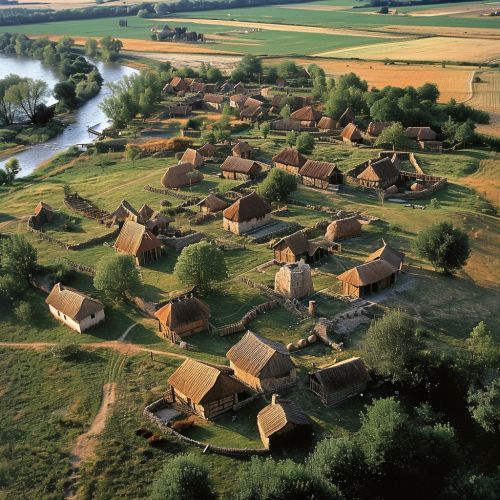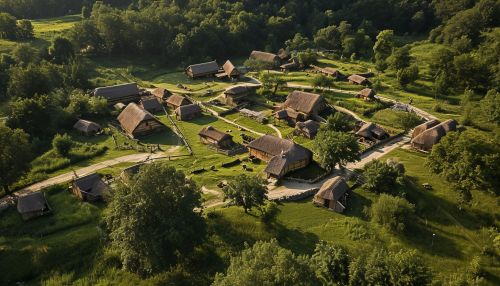Frankish Empire
Origins and Early History
The Frankish Empire, also known as the Carolingian Empire, was a significant political entity in Western Europe during the early Middle Ages. The empire was named after the Franks, a Germanic people who settled in the region during the 3rd and 4th centuries AD. The Franks were initially divided into several tribes, but they gradually coalesced into a unified political entity under the rule of the Merovingian dynasty in the 5th century.


The Frankish Empire reached its zenith under the rule of Charlemagne, who was crowned Emperor by Pope Leo III in 800 AD. Charlemagne's reign marked a period of significant expansion and cultural renaissance, which is often referred to as the Carolingian Renaissance.
Merovingian Dynasty
The Merovingian dynasty, founded by Clovis I, ruled the Frankish Kingdom from the 5th to the 8th century. Clovis I is notable for his conversion to Christianity, which had a profound impact on the religious and cultural development of the Frankish Empire. The Merovingians were eventually succeeded by the Carolingian dynasty, which was established by Pepin the Short in 751.
Carolingian Dynasty
The Carolingian dynasty ruled the Frankish Empire from the mid-8th century until the late 9th century. The most prominent ruler of this dynasty was Charlemagne, who significantly expanded the empire's territory and initiated a cultural and intellectual revival known as the Carolingian Renaissance. Charlemagne's reign is often considered the apex of the Frankish Empire's power and influence.
Carolingian Renaissance
The Carolingian Renaissance was a period of cultural and intellectual revival within the Frankish Empire during the reign of Charlemagne. This period saw significant advancements in the arts, education, literature, and architecture. The Carolingian Renaissance played a crucial role in preserving the cultural heritage of the Roman Empire and laid the foundation for the development of Western civilization.
Decline and Fragmentation
The Frankish Empire began to decline after the death of Charlemagne in 814. His successors were unable to maintain the unity of the empire, leading to its fragmentation into several smaller states. The Treaty of Verdun in 843 formally divided the empire among Charlemagne's grandsons, marking the end of the unified Frankish Empire.
Legacy
The Frankish Empire left a significant legacy in Western Europe. It played a crucial role in the spread of Christianity, the preservation of Roman cultural heritage, and the development of feudalism. The empire's legal and administrative systems also had a profound impact on the political development of Europe.
